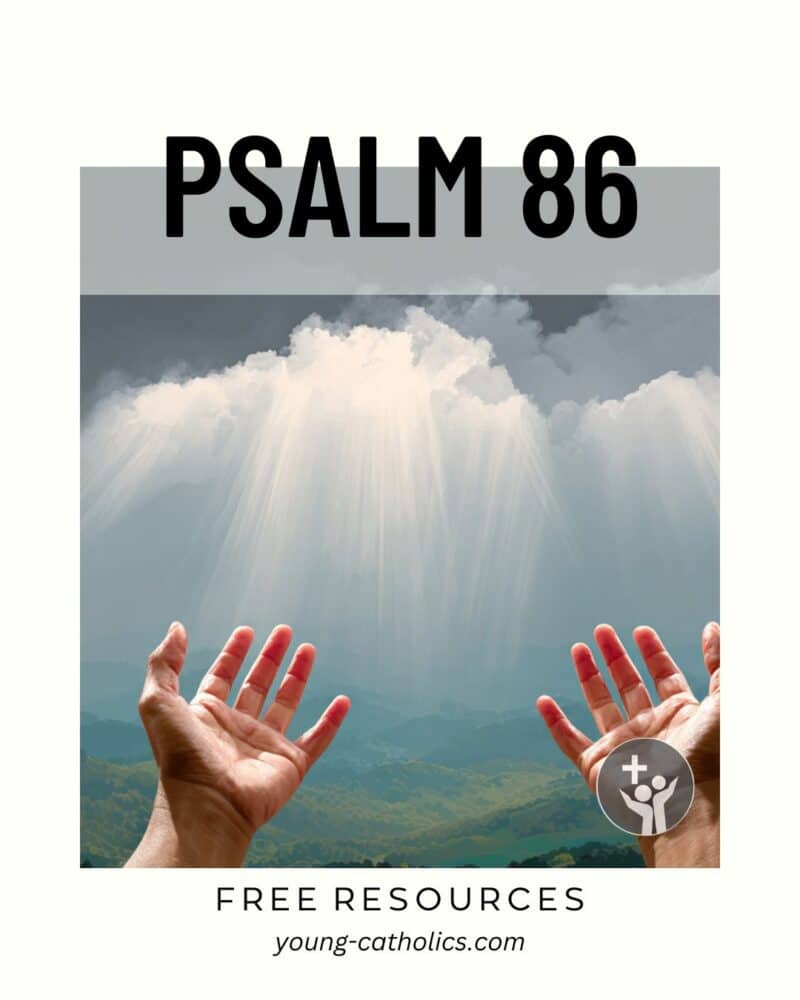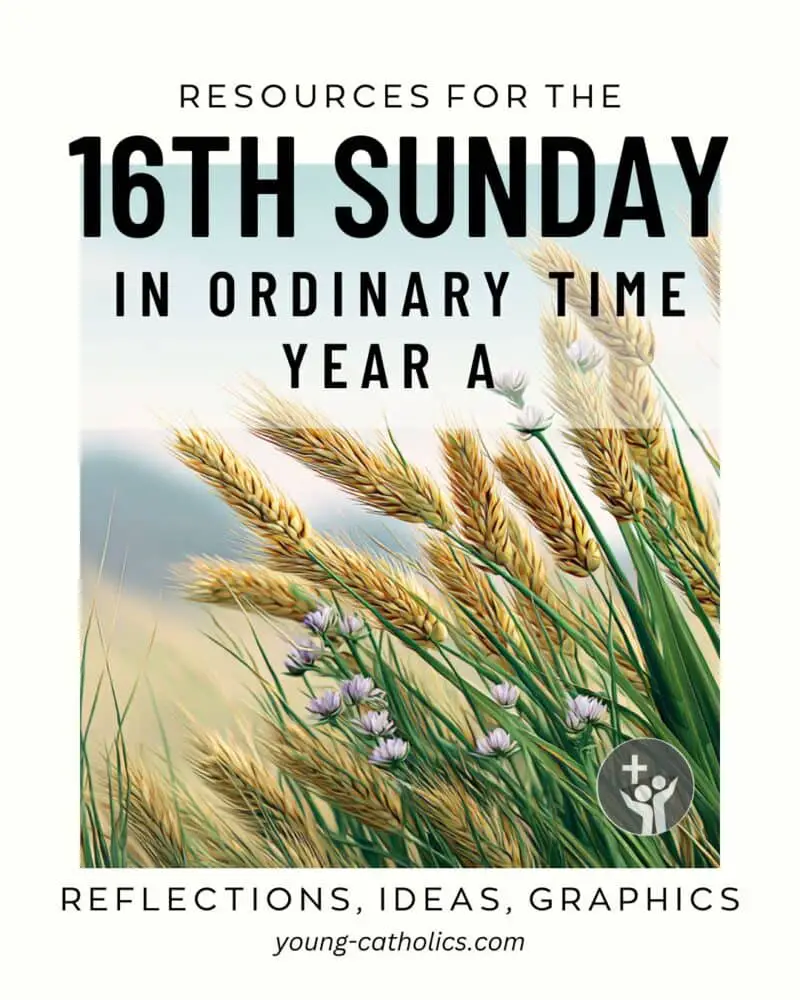Psalm 86

Psalm 86 is a prayer of someone who feels small and weak, yet trusts completely in God. The psalmist turns to the Lord with honesty, asking for help and protection. It is a simple cry from the heart of a person who knows that only God can bring peace and strength. This psalm shows us that prayer does not need to be fancy or full of big words. It just needs to be true.
In this prayer, the psalmist admits their need for God. They ask for mercy and lean on the Lord’s kindness. The words remind us that God listens to those who call upon Him, especially when they are struggling. The psalm helps us see that we can go to God with all of our worries and weaknesses.
The psalm also praises God’s greatness. The psalmist recognizes that no one else compares to Him. God is faithful, forgiving, and full of love. By saying this, the prayer reminds us to place our hope in the Lord alone. It points us to God’s strength and His care for those who trust in Him.
For Christians, Psalm 86 can guide us in our own prayer. It encourages us to bring everything to God, the good and the bad. It teaches us to be honest in prayer and to always remember God’s mercy. This psalm is a simple but strong reminder that the Lord is near to us when we call upon Him with faith.
A Prayer from the Past
This prayer is found in the third book of the Psalms, which includes Psalms 73 through 89. This part of the Psalter often speaks about trouble, asking God for help, and trusting that He will not abandon His people. Many of these psalms remind Israel that God is faithful even when life feels uncertain.
Psalm 86 is special because it is called a prayer of David. While we cannot know for sure if David wrote every word, the style matches the kind of prayers he was known for. It has the personal tone of someone speaking directly to God in a time of need. This helps us feel the closeness between the psalmist and the Lord.
The psalm also includes lines and phrases from other psalms and prayers. This shows that it may have been shaped over time by people who prayed these words together. It reflects both personal prayer and the shared prayer of God’s people.
The historical setting may not be exact, but the message is clear. The people of Israel carried these words in times of weakness and distress. They found strength by remembering God’s mercy and His promise to always hear their cries.
Trusting the God Who Listens
One of the main themes in this prayer is trust. The psalmist admits their weakness and asks God to hear their cry. In Catholic faith, this reminds us that prayer is about turning to God with confidence. We do not stand on our own strength. We rely on His mercy. The psalm shows us that God is close to those who call upon Him with faith.
Another theme is mercy. The psalmist asks again and again for God’s kindness and forgiveness. This connects to Catholic teaching about God’s love shown most clearly in Jesus Christ. Just as the psalmist looked for mercy, we also ask for it in the Mass when we pray “Lord, have mercy.” The psalm leads us to trust that God never tires of forgiving us.
The psalm also highlights God’s greatness. It says that no other gods can compare to the Lord. For Catholics, this points us to the First Commandment, which calls us to love God above all else. The psalm encourages us to keep God at the center of our lives, knowing that He alone can save us.
Lastly, the psalm speaks about thanksgiving. The psalmist not only asks for help but also promises to praise God. This balance of petition and thanksgiving reflects Catholic prayer. We bring our needs before God, but we also give thanks for His goodness. The psalm reminds us that worship and gratitude are always part of faith.
A Prayer That Still Speaks
This prayer continues to touch lives today because it is so simple and honest. Many people feel overwhelmed, weak, or unsure. The psalm shows us that we can bring these feelings straight to God. It reminds us that He is not distant. He listens to our cries just as He listened long ago.
In a world full of stress and noise, this psalm gives us words of peace. It teaches us that we do not need perfect prayers. We just need to turn to God with trust. Catholics can pray this psalm when facing illness, family struggles, or any time life feels uncertain. It is a reminder that we are not alone.
The message of mercy is also important for today. People often carry guilt or feel burdened by mistakes. This psalm shows that God is always ready to forgive. In the Sacrament of Reconciliation, we experience the mercy that the psalmist longed for.
Finally, this psalm encourages us to live with gratitude. Even in hard times, the psalmist promises to praise God. This spirit of thanksgiving can guide us too. When we thank God daily, our faith grows stronger, and we see His hand at work in our lives.
A Prayer Based on Psalm 86
A Cry of Trust
Lord, I come to you as I am.
Sometimes I feel small and unsure.
Life feels busy and full of noise.
Please hear me when I call your name.
You are patient and full of mercy.
When I make mistakes, you forgive me.
When I lose focus, you bring me back.
Teach me to trust your kindness every day.
There is no one like you, Lord.
Friends may leave and plans may fail,
but your love does not end.
Help me remember this when I feel alone.
I will give thanks to you always.
Even in my struggles, I will praise you.
You are my strength and my hope.
Stay close to me and guide my steps.
Prayed Together in the Church
This psalm is included in the Roman Catholic lectionary, which is the collection of readings used at Mass. When Catholics gather for worship, the psalms are often sung or spoken as a response between the first and second readings. Psalm 86 is one of these prayers that the Church shares with us in the liturgy.
In the lectionary, verses from this psalm are used to help the community reflect on God’s mercy and closeness. The words of the psalmist become the words of the whole Church. Together, we ask the Lord to listen to our prayers and to guide us in faith.
The psalm is also used to remind us of God’s goodness and His readiness to forgive. These themes are important in every season of life. When the psalm is prayed at Mass, it connects our personal struggles to the larger prayer of the Church.
By including this psalm in the lectionary, the Church invites us to make its words our own. It is not only a personal prayer but also a prayer of the community. As we join in its verses, we remember that God hears His people and answers with love.

16th Sunday in Ordinary Time Year A
The God Who Forgives
Psalm 86:5-6, 9-10, 15-16 praises the Lord for His goodness and mercy. It shows that God listens to those who call on Him with trust. The prayer reminds us that the Lord is kind, forgiving, and full of compassion. He is the one true God, greater than all else, and worthy of worship from every nation.
It also speaks of God’s patience and faithfulness. The psalmist asks the Lord to turn toward them with pity and strength. This is a reminder that we can always rely on God’s help. In every trial, He is ready to forgive and guide His people with love.
At Weekday Masses
- Saturday after Ash Wednesday – Psalm 86:1-2, 3-4, 5-6, 11b: Seeking God’s Guidance
- Tuesday of the 4th Week in Ordinary Time II – Psalm 86:1-2, 3-4, 5-6: Plea for Divine Mercy
- Wednesday of the 27th Week in Ordinary Time I – Psalm 86:3-4, 5-6, 9-10: God’s Mercy and Kindness
Resources
Social Media Graphics and Bulletin Artwork
Light Breaks Through the Prayer

This uplifting image, inspired by Psalm 86, is now available for download to use in your parish bulletins and newsletters. With hands lifted in trust and light breaking through the clouds, it reflects the psalmist’s prayer for mercy and hope.
Share this meaningful artwork with your community as a reminder that God hears the cry of His people and shines His light in every season.
Paid subscribers may download a large copy this digital artwork without watermarks, suitable for use in bulletins, social media, newsletters, etc., free of charge by clicking here. You must be logged in as a paid subscriber to access the file.
Only current paid subscribers have the rights to use the artwork.
Questions and Answers about Psalm 86
What is Psalm 86 about?
It is a prayer asking God for help, mercy, and guidance. The psalmist admits weakness and turns to God with trust. It is both a cry for protection and a song of praise.
Who wrote Psalm 86?
The psalm is called a prayer of David. We cannot know for sure if David wrote every line, but it reflects the personal style of his prayers.
What themes are in Psalm 86?
The psalm focuses on trust, mercy, thanksgiving, and God’s greatness. It shows that God listens to His people and forgives them.
Why is Psalm 86 important for Catholics?
It connects with Catholic teaching about prayer, mercy, and trust in God. It is a reminder that we can always turn to the Lord, especially in times of weakness.
Is Psalm 86 used in the Mass?
Yes. Parts of the psalm are included in the Roman Catholic lectionary. It is prayed as a responsorial psalm during Mass, joining our voices with the Church.
How can I use Psalm 86 in my own prayer?
You can read it slowly and make the words your own. Use it when you feel stressed, weak, or in need of forgiveness. It is also good for prayer of thanksgiving.
A Cry for Mercy and Trust
Psalm 86 is a prayer of someone who knows their own weakness but trusts that God will never turn away. The psalmist asks the Lord to listen, to give strength, and to show mercy. This simple cry speaks to anyone who has felt overwhelmed and in need of help.
The psalm is also filled with praise. The psalmist admits that no other power compares with God. He alone is faithful, kind, and forgiving. This mix of petition and thanksgiving shows us that prayer is not just about asking for things. It is also about remembering who God is.
For Catholics, this psalm connects strongly to daily life. It speaks of mercy, which we experience in the sacraments. It shows us how to pray with trust, even when life feels uncertain. It also reminds us to give thanks, no matter the circumstance.
Psalm 86 remains a guide for honest prayer. It invites us to turn to God with all our struggles and joys. It shows us that God is close, ready to forgive, and worthy of our praise.
Your Turn
Take a moment to read Psalm 86 slowly and prayerfully. Let the words sink into your heart. Notice how the psalmist moves between asking for help and giving thanks. Try to make the prayer your own as you bring your worries and gratitude before the Lord.
After you read, we invite you to share your thoughts. How does this psalm speak to your own life? What verses stand out to you the most? Share your reflections in the comment section and join in the conversation of faith.



